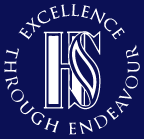SPALD Religious Studies
Curriculum Intent
To have uncompromising aspirations for every individual and for our school to be an exceptional and inspirational community of lifelong learners.
Purpose
The purpose of RE is to develop thoughtful, compassionate, reflective and well-informed students and to enable them to ask questions from a critical, curious and analytical perspective. Students are provided with the opportunity to acknowledge and evaluate perspectives different to their own in order to develop an open-minded approach. Their own thoughts, opinions and views are nurtured, along with the ability to justify them with well-informed knowledge.
Key concepts that underpin the R.E Curriculum
|
Key concepts that underpin the curriculum |
Skills |
|
| 1 |
Cultural awareness/global thinker |
Extracting Key messages and meaning/interpretation Research skills Analytical/Evaluative and critical thinking skills Empathy |
| 2 |
Vocabulary |
|
| 3 |
Religious sources |
|
| 4 |
Diversity, identity and belonging |
|
| 5 |
Religious beliefs |
|
| 6 |
Religious practices |
How does our curriculum shape learners?
The study of R.E develops a wider knowledge and understanding of global values and promotes a person's spiritual moral and ethical curiosity. The curriculum engages students’ curiosity when looking into different religious and non-religious views. It enables them to be empathetic, understanding and considerate when applying their learning within the wider world.
| Academic end points | ||
| Year 7 | By the end of year 7 students will have a foundational awareness of the different ways that people express their religious practices and values, including an awareness of diverse religious experiences with a focus on Hinduism, Sikhism and Buddhism, building upon their cultural awareness, and broaden their world view. They will have knowledge of artefacts and texts associated with different religious and non-religious traditions in the Eastern tradition and be able to use the appropriate vocabulary to begin to express their significance to different followers. Students will start to develop the ability to see the differences and similarities within and between religions. For example students will be able to identify key concepts which underpin the three dharmic religions, e.g. Dharma Karma and reincarnation. | |
| Year 8 | By the end of year 8 building on the skills and prior knowledge acquired in year 7 students will be able to confidently compare and contrast the Abrahamic religions. They will begin to use subject specific vocabulary more frequently to discuss the diversity within religions. Students will have drawn upon their knowledge from History to further consolidate their understanding the Church. They will have an awareness of the impact the history of a religion has on society and how it is practised today. They will begin to refer to scripture to support their knowledge and identify the significance of the prophets to followers and start to articulate their own opinions about religion. Students will be able to identify how religious beliefs and practices shape cultural values and behaviours. In light of this knowledge their cultural awareness will further deepen. | |
| Year 9 |
By the end of the year 9 students will have built on their foundational knowledge of Christianity and Islam and will know Christianity is one of the diverse religious traditions in Great Britain today and that the main religious tradition in Great Britain is Christianity. Students will continue to refer to scripture and/or sacred texts where appropriate to support Christian views. Students will frequently refer to subject specific vocabulary that is applicable to the religious tradition. Students will continue to develop an understanding of religious teachings, and religious, philosophical and ethical arguments, relating to conflict and war and their impact and influence in the modern world for example the Syrian Crisis and terrorism. They will be aware of contrasting perspectives in contemporary British society surrounding peace and conflict. Students will begin to articulate points of view and give reasons. |
|
Click here to visualise the Religious Studies learner journey
Key features of learning
We aim to embed key vocabulary and skills necessary for critical evaluation. Students’ disciplinary expression and vocabulary is developed across the key stages to enable them to pursue the study of R.E and engage in academic discourse around the concepts. Our curriculum also encourages empathy and respect of others’ ideas. Students are encouraged to share their opinions in a safe and supportive environment, as well as developing the ability to structure an argument in a reasonable and logical way.
What will you see in R.E. lessons?
- Every lesson will start with a reference to previous lesson or beyond
- Paired and class discussions, giving the students the opportunity to articulate and develop their thoughts and opinions. Students will have worksheets.
- Visual aids
- Clips will be from a broad range of sources used to help develop students understanding
- There will be reference to PEPE written answers where appropriate.
- Clips
- The use of Elklan strategies.
What will you see in books?
- Worksheets are used.
- Scaffolded work, including missing word activities.
What formative assessment will you see in R.E?
- There will be a range of summative assessment used. Quizzes (Satchel one)
- Questioning (e.g. cold-calling).
- Written answers
- End of topic tests.

